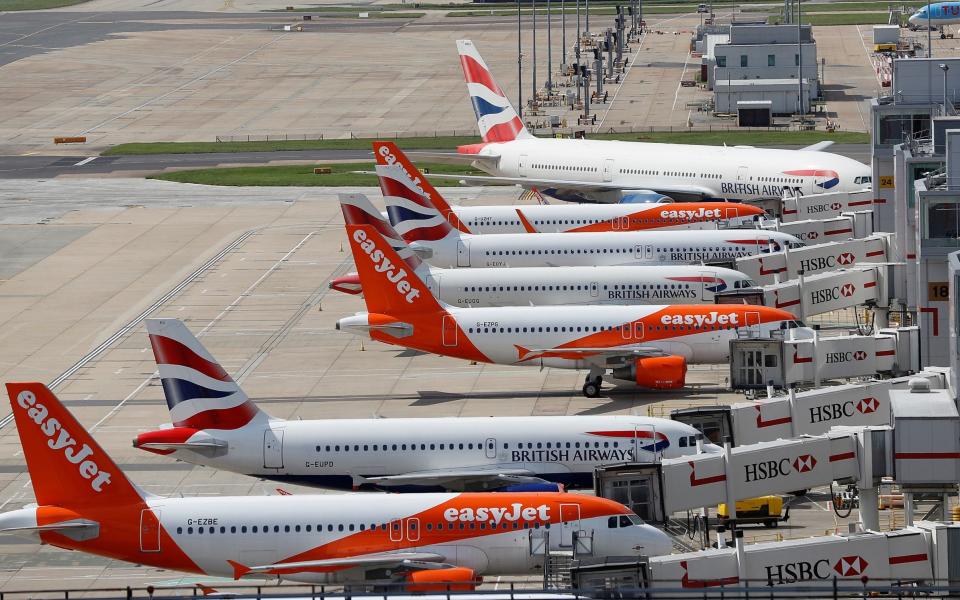Airlines are in crisis – but here are four reasons to buy their shares

Even the very best companies are not immune from external threats that can affect their profits. Challenges related to their own sector or the wider economy can hit even financially sound firms without warning and prompt their share prices to tumble.
For example, IAG, the owner of British Airways, and the low-cost airline easyJet continue to face the problems endemic to their sector. Both companies, along with other carriers, have been hit extremely hard by pandemic-induced restrictions on travel since Covid emerged. While those restrictions have begun to ease in recent months, airlines are now experiencing operational problems, notably staff shortages, that have caused many flights to be cancelled.
There are further external threats on the horizon. Rising fuel costs are likely to put pressure on margins across the industry, while the cost of living crisis is hardly conducive to higher demand for travel. But in Questor’s view there are four causes for optimism.
First, external challenges that are likely to be temporary can provide excellent buying opportunities for long-term investors. They prompt lower share prices among industry incumbents that sow the seeds for greater long-term capital appreciation. Woes within a particular sector can also improve the position of stronger firms relative to weaker rivals. This may allow them to enjoy greater long-term profitability as their industry recovers.
Second and crucially, IAG and easyJet have the financial resources needed to overcome even the most severe economic and industry-specific threats. Both companies have raised capital since the start of the pandemic and have slashed costs to limit their losses while passenger numbers remain below 2019 levels.
Currently, IAG has access to more than £10bn; the figure for easyJet is £4.4bn. Such sums will allow them to ride out further losses in the short run so they are able to benefit from an improving industry outlook over the long run.
Third, both carriers have experienced a marked improvement in passenger capacity over recent months. They expect this trend to continue in spite of the operational challenges. In a trading update last week, easyJet said it expected passenger capacity to reach 90pc of 2019 levels in the three months to September. IAG expects to reach the same level in the final quarter of this year.
Clearly, rising input costs are likely to necessitate price increases across the airline industry. When combined with a decline in discretionary incomes, the level of near-term demand for leisure travel remain highly uncertain.
While holidays are classed as discretionary spending, Questor suspects – and here is the forth reason for optimism – that many people view a trip or two abroad each year as more akin to a staple item. This could make demand for leisure air travel more resilient, as Covid-related restrictions and operational problems abate, than IAG and easyJet’s recent share price performance suggests.
Their shares have fallen heavily since this column last reiterated its buy advice for both stocks in August last year. Since then IAG is down by 30pc and easyJet by 52pc. Since our original tip in February last year IAG’s shares have fallen by 26pc; easyJet has lost 71pc since our original tip in July 2017.
Understandably, investors in both companies will feel disappointed with the returns so far. However, the problems faced by IAG and easyJet are external in nature.
Covid, operational challenges, rising fuel costs and a cost of living crisis have combined to hit the market value of all airlines. Although some or even all of those difficulties are likely to remain in the short run, they are unlikely to be here forever.
Therefore, in Questor’s view, both companies offer strong long-term recovery potential and are worth buying. They have the financial means to survive present difficulties and the market position to capitalise on a likely rebound for the sector. When that takes place is impossible to predict.
But long-term investors who can tolerate heightened volatility in the coming months are likely ultimately to enjoy attractive returns as industry and economic conditions improve.
Questor says: buy
Tickers: IAG, EZJ
Share prices at close: 116.08p, 403.6p
Read the latest Questor column on telegraph.co.uk every Sunday, Tuesday, Wednesday, Thursday and Friday from 5am.
Read Questor’s rules of investment before you follow our tips.

 Yahoo Finance
Yahoo Finance 